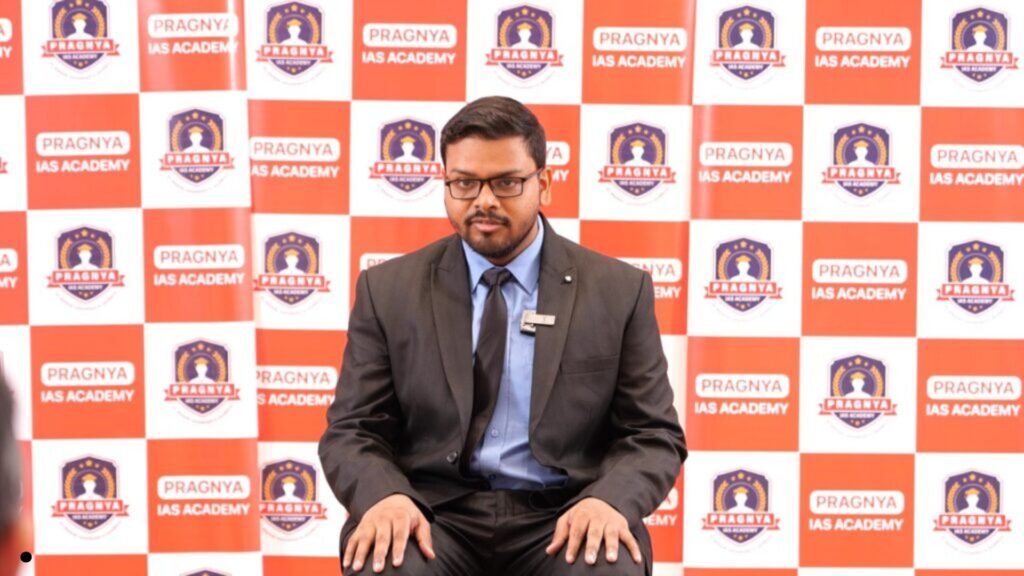How to Get an IAS Job in Telugu 2024: Eligibility, Salary, Allowances, Benefits, Post Names, Duties, and Syllabus
The Indian Administrative Service (IAS) అందరికి కలెక్టర్ అవ్వాలని ఆశ చాల ఉంటుంది, కొందరికి ఇది జీవిత లక్ష్యం లాగా కూడా ఉంటుంది,ఈ రోజు మనం కలెక్టర్ ఎలా అవ్వాలి అనేది మొత్తం తెలుసుకుందాం.అలాగే eligibility, salary, allowances, benefits, post names, duties, and syllabus ఇవన్నీ కూడా తెలుసుకుందాం.
Eligibility Criteria
Indian Citizen: ఇండియన్ సిటిజెన్ అయినవారు మాత్రమే దీనికి అప్లై చేయాలి.
Minimum Qualification: గుర్తింపు ఉన్న యూనివర్సిటీ నుండి డిగ్రీ సర్టిఫికెట్ ఉండాలి .
Final Year Students: Candidates who are in their final year of graduation can also apply, provided they present proof of passing the exam with their application for the Main Examination.
Age Limit
- General Category: 21 to 32 years
- OBC Category: 21 to 35 years
- SC/ST Category: 21 to 37 years
- Persons with Benchmark Disability: Additional age relaxation is provided.
Number of Attempts
- General Category: 6 attempts
- OBC Category: 9 attempts
- SC/ST Category: Unlimited attempts until the age limit is reached
- Persons with Benchmark Disability: 9 attempts for general and OBC, unlimited for SC/ST
Salary | Allowances & Benifits
- Basic Pay: The basic pay for an IAS officer starts at approximately ₹56,100 per month.
- Grade Pay: This increases with each promotion. The highest grade (Cabinet Secretary) can earn a basic salary of ₹2,50,000 per month.

Allowances
- Dearness Allowance (DA): Adjusted periodically to counter inflation.
- House Rent Allowance (HRA): Varies based on the city of posting, generally between 8% to 24% of the basic pay.
- Travel Allowance (TA): Includes both local and official travel expenses.
- Medical Allowance: Reimbursement of medical expenses for self and dependents.
Benefits
- Government Accommodation: Well-furnished houses at minimal rent.
- Official Vehicle: Provided along with a driver for official duties.
- Security: Security cover based on the level of threat and nature of the job.
- Pension and Retirement Benefits: Post-retirement benefits include pension and other financial benefits.
Post Names and Duties
Post Names
- Sub-Divisional Magistrate (SDM): Initial posting responsible for administration at the sub-division level.
- District Magistrate (DM) / District Collector: Head of the district administration.
- Divisional Commissioner: Oversees the administration of a division.
- Secretary to the Government: Policy formulation and implementation at the state and central levels.
- Chief Secretary: Head of the state administration.
Duties
- Policy Implementation: Executing policies formulated by the government.
- Law and Order: Ensuring peace and order within their jurisdiction.
- Development Work: Supervising and implementing developmental projects.
- Revenue Collection: Overseeing revenue collection in the district.
- Public Grievances: Addressing and resolving public complaints and issues.
EXAM and Syllabus
Preliminary Examination (Prelims)
The Prelims serve as a screening test, consisting of two objective-type papers. The scores from these papers are not counted towards the final ranking but are essential to qualify for the Mains.
Paper I: General Studies (200 marks, 2 hours) This paper assesses a candidate’s awareness and understanding of a wide range of subjects crucial for a civil servant.
- Current Events of National and International Importance: Stay updated with recent happenings and significant events around the world.
- History of India and the Indian National Movement: Focus on key historical events, movements, and personalities that shaped modern India.
- Indian and World Geography: Understand the physical, social, and economic geography of India and the world.
- Indian Polity and Governance: Gain knowledge about the Constitution, political system, Panchayati Raj, public policies, and rights issues.
- Economic and Social Development: Study topics like sustainable development, poverty, inclusion, demographics, and social sector initiatives.
- Environmental Ecology, Biodiversity, and Climate Change: Cover basic concepts that do not require subject specialization but are crucial for policy-making.
- General Science: Basic scientific concepts and advancements relevant to everyday life and public administration.
Paper II: Civil Services Aptitude Test (CSAT) (200 marks, 2 hours) This paper evaluates a candidate’s aptitude and analytical abilities, crucial for effective administration.
- Comprehension: Test your ability to understand and interpret written texts.
- Interpersonal Skills and Communication: Assess your ability to communicate effectively and work well with others.
- Logical Reasoning and Analytical Ability: Solve problems logically and analytically.
- Decision-Making and Problem-Solving: Make sound decisions and solve problems efficiently.
- General Mental Ability: Measure your overall intellectual capacity.
- Basic Numeracy and Data Interpretation: Apply basic mathematical concepts and interpret data accurately.

Main Examination (Mains)
The Mains is a comprehensive written examination consisting of nine papers. Seven of these papers contribute to the final ranking, while the other two are qualifying in nature.
Qualifying Papers
- Paper A: (300 marks) One of the Indian languages listed in the Eighth Schedule of the Constitution. It tests basic language skills.
- Paper B: (300 marks) English. It ensures candidates have an essential command of the English language.
Papers Counted for Merit
- Paper I: Essay (250 marks)
Write essays on multiple topics, demonstrating your ability to articulate and organize ideas clearly and coherently. - Paper II: General Studies I (250 marks)
Covers Indian Heritage and Culture, History, and Geography of the World and Society. Study cultural aspects, historical events, and geographical phenomena. - Paper III: General Studies II (250 marks)
Focuses on Governance, Constitution, Polity, Social Justice, and International Relations. Understand the political and governance structures, social justice issues, and India’s international relations. - Paper IV: General Studies III (250 marks)
Involves Technology, Economic Development, Biodiversity, Environment, Security, and Disaster Management. Study contemporary issues affecting technological advancements, economic policies, environmental conservation, and national security. - Paper V: General Studies IV (250 marks)
Ethics, Integrity, and Aptitude. This paper tests your ethical understanding and integrity, crucial for public administration. - Paper VI & VII: Optional Subject Papers 1 & 2 (250 marks each)
Choose an optional subject from the UPSC’s list, and delve deep into two papers that test your expertise in that subject.
Personality Test (Interview)
The Personality Test, or Interview (275 marks), is the final stage of the IAS examination. It assesses the candidate’s overall personality, including intellectual abilities, social traits, and interest in current affairs. The interview panel evaluates your suitability for a career in public service based on your responses and demeanor.
Optional Subjects for Mains
Candidates can choose from a wide range of optional subjects, including:
- Agriculture
- Animal Husbandry and Veterinary Science
- Anthropology
- Botany
- Chemistry
- Civil Engineering
- Commerce and Accountancy
- Economics
- Electrical Engineering
- Geography
- Geology
- History
- Law
- Management
- Mathematics
- Mechanical Engineering
- Medical Science
- Philosophy
- Physics
- Political Science & International Relations
- Psychology
- Public Administration
- Sociology
- Statistics
- Zoology
- Literature of various languages


